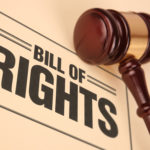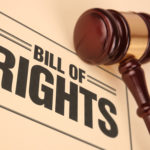Albanese Must Deliver Human Rights Protections

“No one left behind because we should always look after the disadvantaged and the vulnerable… to make a positive difference each and every day”, said Anthony Albanese during his victory speech last month. And to “unite around… our shared values of fairness and opportunity”.
Civil Liberties Australia (CLA) chief executive Bill Rowlings highlights these comments made by the incoming prime minister, as his organisation asserts, that the new Labor government would go a long way to achieving these aspirations by prioritising the enshrining of basic rights in federal law.
Australia is currently the only western democracy without laws guaranteeing human rights at the federal level.
Often referred to as a bill or charter of rights, or a human rights act, such laws serve to protect the rights of citizens in their daily lives, as well as ensuring that rights-eroding laws aren’t enacted.
So, with the coming of the Albanese government, CLA is ramping up its Human Rights Act (HRA) campaign following two years of behind-the-scenes advocacy work, which has involved close to 100 meetings with stakeholders, including four with new Australian attorney general Mark Dreyfus.
A key reason why a government might be reluctant to enact such laws is that they curb the powers of those who govern. Although, of the two majors, Labor has always shown more willingness to consider such measures, and the party has a HRA review as part of its current policy platform.
It’s time (again)
“CLA held meetings with all the usual suspects, but many more as well,” said Rowlings. “Like minerals and business council executives, three Aboriginal land councils, the Minderoo Foundation, farmers groups, federal, state and territory politicians of all colours, and even opponents of a HRA.”
“We were sounding out current thinking and comparing it with the overwhelming support among Australians evidenced in the massive 2009 public consultations held nationwide,” the CLA chief executive told Sydney Criminal Lawyers.
The Rudd Labor government established a National Human Rights Consultation Committee (NHRCC) in November 2008. Headed by Father Frank Brennan, the inquiry undertook widespread consultations and went on to produce a report recommending the establishment of a federal HRA.
But in April 2010, Rudd released his government’s response to the inquiry. And instead of drafting a HRA, it committed to establishing a Parliamentary Joint Committee on Human Rights to scrutinise federal laws through a rights lens, which the Gillard government saw to fruition in 2012.
So, right now, we’re back to the same position the nation found itself in 2007, with a federal Labor government promising a HRA review. Yet, according to Rowlings, the clear difference now is that the political landscape has changed dramatically both within parliament and the national conscience.
The writing’s on the wall
CLA has found that businesses and corporations are already factoring human rights into their dealings with stakeholders and customers. “It just makes business sense, part of their social compact with the community, to ensure they have a ‘licence’ to operate,” Rowlings added.
The liberties advocate further explained that the need to include “societal values” in business decisions has been learnt the hard way, via situations like “Rio Tinto’s blowing up of the 46,000-year-old Juukan Gorge caves”, which saw share prices crash and executives lose their jobs as a result.
At the grassroots level, the lack of rights protections in this country has been brought to the fore via recent government policy decisions. Rowlings pointed to restrictions on returning to the country during the pandemic as an instance, along with the abuses of Robodebt, which continued for years.
“Why couldn’t people easily enforce their rights to travel overseas during the pandemic, when other countries were willing to take them?” asked Rowlings in highlighting another example.
“Now, with the experience of how easily rights and liberties can be snatched away in an instant at a media conference, even more Australians will support a HRA, CLA believes.”
Neglected protections
Many questioned the constitutionality of recent COVID restrictions, only to find that the nation’s founding document guarantees very few rights.
Indeed, there were discussions held in the 1890s concerning whether a bill of rights should be included in the Australian Constitution, but the idea was dropped as it might have impacted upon laws of the day that were racially discriminatory in nature.
So, only a handful of rights appear in the Constitution. Section 41 provides the right to vote. Section 51(xxxi) guarantees just government acquisition of property. Section 80 ensures trial by jury. Section 116 establishes freedom of religion, while section 117 guards against discrimination based on state.
The High Court of Australia further found in 1992 that within the 1901 founding document is the implied right to freedom of political communication.
A HRA, however, would enshrine the rights contained within the International Covenant on Civil and Political Rights (ICCPR) and the International Covenant on Economic, Social and Cultural Rights (ICESCR).
Australia has ratified both these treaties, which means it’s guaranteed to uphold these rights at the international level but not domestically.
The Liberal Nationals have traditionally been against enacting a national HRA. In fact, the Morrison government attempted to pass the Religious Discrimination Act, which was an attempt to elevate the pre-existing right to freedom of religion above all others.
While Labor has more open to such laws in the past, as was evidenced by the 2009 Brennan review, and with the Whitlam government’s attempt to enact one. In 1973, then attorney general Lionel Murphy introduced a HRA under Gough, which ultimately failed to due to opposition.
Over recent years, Andrew Wilkie has been championing the cause at the federal level. The Independent MP introduced two Australian Bill of Rights Bills: one in 2017 and another in 2019.
An ICAC isn’t enough
Labor is committed to the HRA review, assures Rowlings, but he underscores that they “need to act on it early in their term, because the last thing anyone wants is the importance of a HRA being pilloried during an election campaign by the negativity of populist politicians”.
A key issue during the election campaign was the establishment of a federal national integrity commission, and whilst this will prevent “politicians and corporate heavies” from abusing the system for their own financial gain, there continues to be a need for basic rights protections regardless.
“In the day-to-day dealings of the people with government, there’s an equal need to ensure individuals can enforce their rights with remedies that are quick and relatively easy to access,” explained the CLA chief executive.
Light at the end
In stepping up its years-long HRA campaign, CLA has approached all teal and other independents that have recently been voted into office, to advise them that an effective national integrity commission is not enough, and laws protecting grassroots rights are essential to a just society.
CLA considers a national ICAC and federal HRA will form “the basis of the ethical infrastructure needed to make our society sustainable and fair”. And it expects that the 14 percent of the country that opposed such laws in 2009, will have dropped dramatically in number following the pandemic.
“We think the new attorney general and most Labor MPs agree with us, as do the Greens formally, and many of the new teals,” Rowlings said in conclusion.
“Our campaign is mainly to get the AG and the government to act quickly on the matter, starting in the first 100 days and delivering in the first 18 months.”







